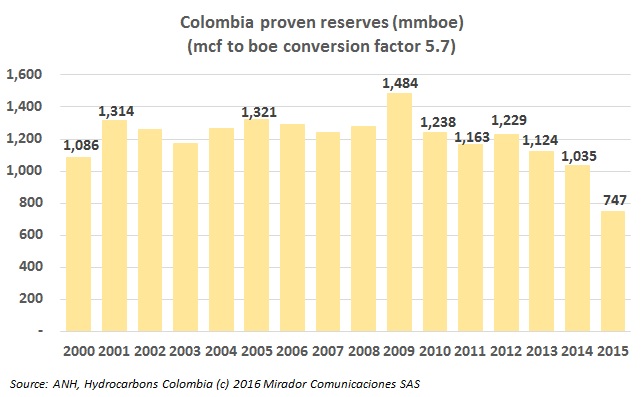Caquetá congressional representative Harry González said that public order problems which have arisen following the start of hydrocarbons exploration activities show that a departmental popular referendum is necessary to see if the residents want to accept the activity.
Our previous report on Enercol 2016 was mainly about crude but in this part, we will focus on gas.
As President Juan Manuel Santos addressed the UN general assembly saying “there is one less war on this planet”, a recent survey found that the “yes” votes are leading, but there is still plenty of skepticism on the process.

The Cartagena Refinery (Reficar) expansion is not enough, warns the Colombian Petroleum Association (ACP), and if refining capacity is not expanded, by 2040 Colombia could be importing half of its fuel and gasoline.
The legal limit for the government to present its biannual royalty budget for 2017 and 2018 is approaching fast and due on October 3rd, the day following the plebiscite on the peace agreements. This and other royalty related stories in our periodic summary.
HCC attended the XXXIII Colombian Energy Conference (Enercol), organized by the Colombian Engineers’ Association (ACIEM), Cundinamarca chapter, at Club El Nogal in Bogotá.

According to figures from the Colombian Chamber of Oil Goods and Services (Campetrol), the oil industry has contributed nearly CoP$215.9T (US$72.2B) since 2006, and this demonstrates the importance of the industry and its financial health.
Colombia has been relatively successful in attracting investment to its oil industry over the last few years, and this seen in the signing of US$12.15B with the National Hydrocarbons Agency (ANH), but its president Orlando Velandia said that to see this capital materialize, greater management is needed from the government.
The president of Colombia’s Conservative Party David Barguil wrote a column saying that it is not enough to merely hope for better oil prices and bet on a diversified productive base, the government must extend urgent measures to the oil industry for the better of the whole country.

The General Controller Edgardo Maya Villazón urged a reworking of the government’s strategy to ensure gas supply in times of crisis, and said the current strategy is not effective.